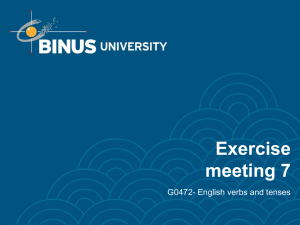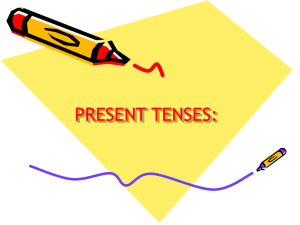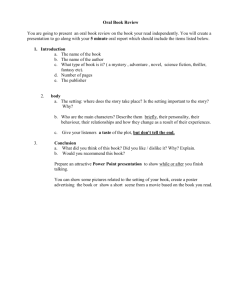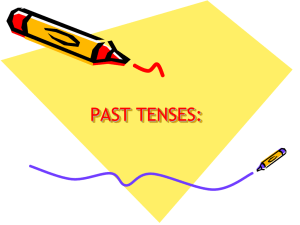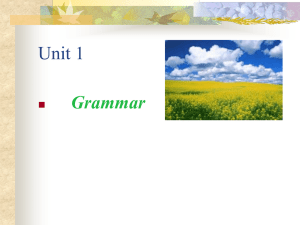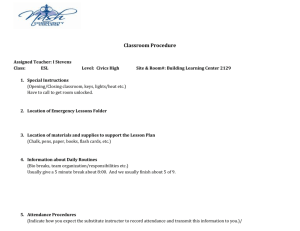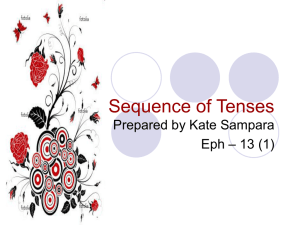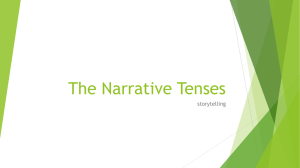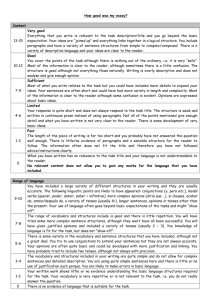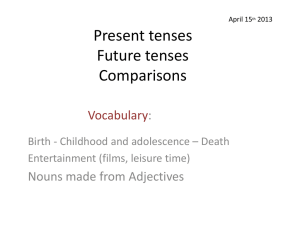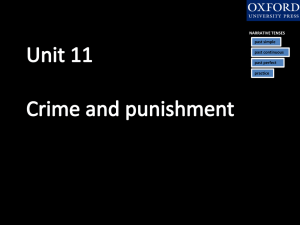Theory: uses
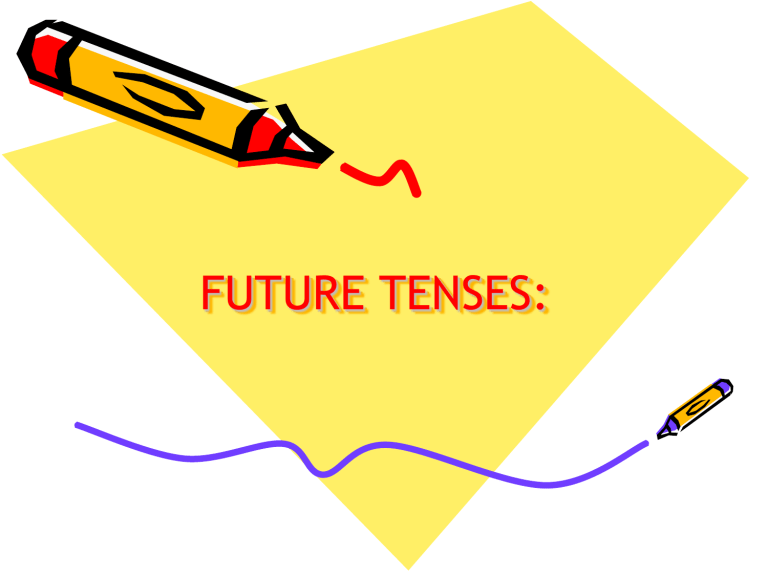
FUTURE TENSES:
Future tenses
• There are four “future tenses” in
English: o Future simple o Future continuous o Future perfect simple o Future perfect continuous
Future tenses
• But there are other verb forms and tenses we use to talk about the future: o Be going to o Present simple o Present continuous o Might/ May
Future simple : uses
I think he’ll fail the exam.
Why are we using the future simple here?
Future simple : uses
FUTURE PREDICTIONS WITHOUT EVIDENCE
Future simple : uses
I’ll go to bed now.
I’ll pay you back tomorrow.
I’ll give you a hand with the washing-up.
Why are we using the future simple here?
Future simple : uses
FUTURE INTENTION/DECISION MADE AT
THE MOMENT OF SPEAKING.
So it’s used with:
- promises: I’ll pay you back tomorrow.
- offers: I’ll give you a hand with the washing-up.
Shall I help you?
- suggestions: Shall we go to the cinema tonight?
- requests: Will you marry me?
- refusals: I won’t tell you anything.
Future simple : uses
The sun will rise at 6.30 tomorrow.
Christmas day will fall on Tuesday this year.
Why are we using the future simple here?
Future simple : uses
FUTURE FACTS
The present simple is also possible:
The sun rises at 6.30 tomorrow.
Christmas day falls on Tuesday this year.
Future simple : uses
If I pass this exam, I’ll have a party.
Why are we using the future simple here?
Future simple : uses
IN FIRST CONDITIONAL CLAUSES
(in the main clause)
Future continuous : uses
Come round in the morning. I’ll be painting the kitchen.
Why are we using the future continuous here?
Future continuous : uses
ACTIVITIES WHICH WILL BE IN PROGRESS
IN THE FUTURE
Future continuous : uses
Come round whenever you like. I’ll be looking after the kids all day.
Why are we using the future continuous here?
Future continuous : uses
UNPLANNED ACTIVITIES WHICH WILL BE IN
PROGRESS IN THE FUTURE
(the activity is normally done so it’s predicted to be happening in the future)
Future perfect simple : uses
By next Christmas we’ll have been here for 8 years.
The builders will have finished the roof by Saturday.
Why are we using the future perfect here?
Future perfect simple : use
ACTIVITIES THAT WILL HAVE (NOT)
FINISHED BEFORE A FUTURE TIME
Future perfect continuous : use
By the end of next month I’ll have been living here for ten years .
Why are we using the future perfect continuous here?
Future perfect continuous :use
ACTIVITIES THAT WILL HAVE (NOT)
FINISHED BEFORE A FUTURE TIME
(= future perfect, but there is emphasis on how
long the activity will have been going on)
By the end of next month I’ll have been living here for ten years .
Future tenses
• There are other verb forms and tenses we use to talk about the future: o Be going to o Present simple o Present continuous o Might/ May
Be going to : uses
Sandra’s going to have another baby in
June.
Look at the sky. It’s going to rain.
Why are we using the be going to form here?
Be going to : uses
FUTURE PREDICTIONS WITH EVIDENCE
Be going to : uses
A: What are you going to do when you finish school?
B: I’m going to work for my father.
Why are we using the be going to form here?
Be going to : uses
PREMEDITATED FUTURE
INTENTION/DECISION
Present simple : uses
The plane leaves at 5.00.
The sun rises at 5.20 tomorrow.
Why are we using the present simple here?
Present simple : uses
IN FUTURE FIXED EVENTS ON A
TIMETABLE, CALENDAR, ETC.
Present simple : uses
When you arrive, phone me.
If I pass this exam, I’ll have a party.
Why are we using the present simple here?
Present simple : uses
TO REFER TO FUTURE TIME:
- IN TIME CLAUSES
- IN FIRST CONDITIONALS
Present continuous : uses
I’m meeting Bill at 4.30.
We’re staying in a small hotel for a week.
Why are we using the present continuous here?
Present continuous : uses
FUTURE PERSONAL PLANS
(= be going to for premeditated intentions)
MAY/ MIGHT : uses
Take your umbrella. It may/might rain.
Why are we using may/might here?
MAY/ MIGHT : uses
FUTURE POSSIBILITY
FUTURE TENSES
Created by:
Carmen Luisa Pérez Amaro
